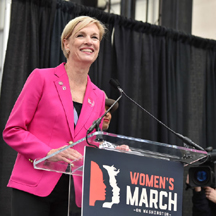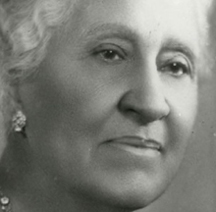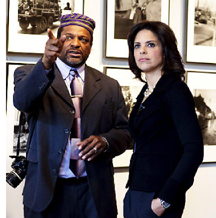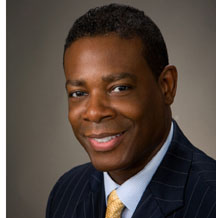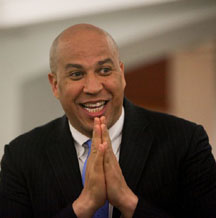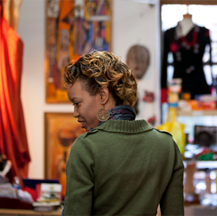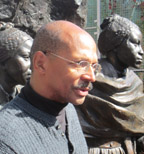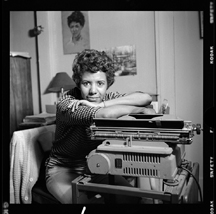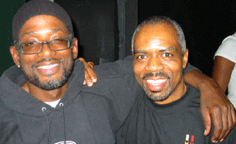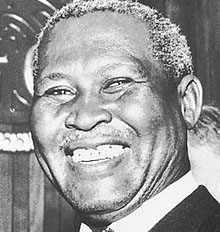Having trouble viewing this email? Click here

The screening will feature a discussion with the film's director Robin Hamilton and Port Of Harlem contributor and historian C. R. Gibbs.
"Earnest Withers was on the front lines as a combat photographer for justice,” says Sharon Farmer, who was the first African-American Director of White House Photography.
Given that life expectancy for Black, non-Hispanic males is 70.8 years, and 77.5 years for Black, non-Hispanic women, do you think it is wise that they wait until they are 70 to start receiving benefits?
What if what appears to be memory loss is something else entirely?
Health insurance companies should serve the people, "not insurance companies and their executives,” says Senator Elizabeth Warren.
Calabar Imports, "represent Black cultural destinations of New York,” says Atim Annette Oton.
See what is most popular in Port Of Harlem's e-mailed issue, and on our web, Pinterest, and Facebook pages.
Raised in privilege but degraded by persistent racial prejudice, Mary Church Terrell fought for the basic human right to be treated equally. Born the year of the Emancipation Proclamation, she made it her life's mission to fight for justice. She, along with her husband, Robert Heberton Terrell, became champions of this cause. He was a lawyer who became the first Black municipal court judge in Washington, DC.
Terrell was an activist on many fronts from becoming the first president of the newly formed National Association of Colored Women in 1896 to co-leading the successful effort to desegregate restaurants in Washington, DC. During her senior years, she also succeeded in persuading the local chapter of the American Association of University Women to admit Black members.
Along the way, the Terrell's house became a beacon for change. Today, her former home on 326 T Street, NW is a dilapidated frame in the LeDroit Park section of Washington, DC. Its current state threatens to erase a landmark that deserves to be preserved for a woman whose efforts continue to impact that city.
Born the year of the Emancipation Proclamation, Mary Church Terrell made it her life's mission to fight for justice.
Click Here to See the Trailer
The new film's screening will be presented Saturday, February 10 at 11a. at the Alexandria Black History Museum. Free street parking is available. Children are admitted free, if they are sitting in the lap of a paying person. If you are using MetroAccess, feel free to call the museum at 703.746.4356 so we may ensure that there is parking space in the front of the building upon your arrival.
The Alexandria Black History Museum is at 902 Wythe Street, Alexandria, Virginia, 22314, five blocks from the Braddock Road Metro Station on the Yellow and Blue Lines. For more information, please call 703.746.4356.
To reserve and pay for your seat(s), click Reserve Your Seat Now.
Note: See the film's director Robin Hamilton on Great Day Washington, Monday, February 5, 9a, WUSA-TV Channel 9 – Washington, D.C. .
The historic designation will preserve for posterity what appears to be a typical ranch-style home of white brick built 63 years ago. The home is at 480 W. Brooks Road in South Memphis' Walker Estates neighborhood.
To celebrate the designation, there will be a historical symposium for the late Withers at historically Black Lemoyne-Owen College, 807 Walker Ave, in the Little Theatre on the campus. The event is Friday, February 9 from 5p-6p.
"Earnest Withers was on the front lines as a combat photographer for justice,” says Sharon Farmer, who was the first African-American Director of White House Photography. The native Washingtonian says his photographs provide documented "proof of oppression tactics the White power structure” used to keep Blacks in their place. "It took and still takes much courage to go where there's conflict,” she continued.
Read More: Soledad O'Brien explores a surprising story of the civil rights era
"But, make sure to evaluate your decision based on how much you've saved for retirement, your other sources of income in retirement, and your expectations for longevity,” they continued.
While some financial planners suggest you begin your social security payments at age 70, when monthly benefits reach their peak, recent data show that the life expectancy at birth for non-Hispanic Black men is 70.8 years. That means that the typical Black non-Hispanic man who begins receiving social security at age 70, will only receive monthly payments for eight months before the reading of his last rites. The life expectancy at birth for non-Hispanic Black women is 77.5 years.
"In my practice for example, I advise over 90% of them to take their benefits at age 62. We have no idea what the government is going to do with Social Security and healthcare,” he continued.
James Veal says he works mostly with baby boomers and gets this question all the time.
Read Fidelity: Should You Take Social Security at 62?
Read MSN: 3 Reasons It's Smart to Take Social Security Benefits at 62
Read: Black, White Life Expectancy Gap Closing In
Read: Port Of Harlem Money department
According to the National Institute on Deafness and Other Communication Disorders (NIDCDC), nearly 25 percent of those aged 65 to 74 and 50 percent of those who are 75 and older have disabling hearing loss. So in cases like this, it may be less about not remembering and more about having never heard the message to begin with.
Here are a three telltale signs you should be on the lookout for:
- One-on-one in person conversations are easy, but talking on the phone is more challenging.
- When in a public restaurant, they seem to lose parts of the conversation.
- The level of their voice is inappropriately loud when the intention is to be discreet.
As a result of the progressive nature of hearing loss, it can become gradually worse without the actual problem being apparent. As an invisible condition, millions of Americans simply do their best to cope without realizing how bad it has become. In fact, about 28.8 million U.S. adults could benefit from using hearing aids according to the NIDCDC.
Hearing loss can have a major impact on someone's quality of life. Losing your hearing can add to the feelings of isolation, confusion, and frustration and can take a toll on relationships. Fortunately, this is a condition that can be addressed and improved with counseling, devices like hearing aids, and assisted listening devices to amplify sound. These can all make a major difference when it comes to improving the quality of everyday activities and experiences.
If your parent experiences any of these issues, the first step is to make sure they schedule an appointment for a hearing test. The hearing test is typically conducted by an audiologist who will provide an evaluation of the sensitivity of your parent's sense of hearing. The test evaluates a person's ability to hear by measuring the ability of sound to reach the brain.
The audiologist will then be able to treat the issue based on the results. If hearing loss is in fact present, there are several treatment options that can greatly improve quality of life for your parent. .
But the health care problem persists: "Black women are three to four times more likely to die than White women in child birth,” he continued at the annual FamiliesUSA conference, organized by an organization that bills itself as "the voice for health care consumers.”
During his 30-minute speech, the former Newark, New Jersey mayor called the founding fathers "imperfect people,” who put forth "genius” on the planet. Quoting a number of famous people including Trinidadian-American Stokely Carmichael, Langston Hughes, (citing his poem Let America Be America Again), Alice Walker, and Martin Luther King, Jr, he talked about American ideals and how every generation worked to make those ideals a reality.
This is "the richest country on the planet earth. Every American should be entitled to health care. Every American should be entitled the security that comes with having access to affordable care,” he said with thrust to motivate the mostly young to middle-aged White female crowd to continue the health care fight.
He ended by giving a glimpse of what motivates him by telling the audience that his father, who graduated from historically Black North Carolina Central University, once told him, "You can never pay back what your ancestors did for you, but you can pay it forward.”
Massachusetts Senator Elizabeth Warren (D) roused the crowd by sharing her story of being raised on the "last street" in a small Oklahoma town. When she was 12, her father had a heart attack and his lost wages caused the family to permanently downsize. Our current health system, she still maintains, puts "all but the richest amongst us at risk.”
"Time to go on the offense,” she declared as she got to the heart of her point: that health insurance companies should serve the people, "not insurance companies and their executives.” Warren, like Booker, is a first term Senator.
Health Inequities on the Table
The existence of racism is why we even see "an association between race and social class,” said Dr. Camara Jones of the Morehouse School of Medicine as she explained that racism is the "social interpretation of how one looks.” She went on to tell how she would be racially classified differently in the United States, Brazil, and South Africa - - and her expected health state would be tied to that classification.
Other diverse panelists continued the discussion on the correlations of race, social class, poverty, and other issues with health outcomes.
Racial classification and social class has its consequences Dr. David Williams of the Harvard School of Public Health further explained. "Your ZIP code is a stronger indication than your DNA” as a driver in the health care you will receive.
Perception also can be clouded by facts continued Ed Tepporn of the Asian Pacific Islander American Health Forum. He said while Asians are often considered the "model” minority, when you look at Asian subgroups you discover that Asians are not alike and have different issues. He pointed out that amongst Asians, the poverty rate is 12.6 percent, but lower among Filipinos, 7.9 percent, and much higher among Marshallese, 40.6 percent.
Like Booker, Warren, and others. Dr. Tekisha Everette found her unique way to call for offensive action. "Where we are today is not the fault of anyone here today,” said Everette of Health Etiquette Solutions, "unless you hear about it and do nothing.”
They opened their first store in Crown Heights, Brooklyn in 2004 and their latest and third store in Harlem in 2015. The stores, Atim says, will survive the retail downsizing because the stores, "represent Black cultural destinations of New York.”
While the New Yorkers offer a plethora of goods, Congo native Lemy Alemo sales seven items that celebrate Africa and the Africa diaspora through his online company Kilombo D Palmares. One item that intrigues me is a mug ($14.99) that changes color as you pour hot water into it. However, what makes the mug noteworthy is its tribute to maroons.
Note: This is the first of two articles highlighting Black-owned businesses during Black History Month. We will feature at least two more in the next issue.
Mosaic Theater's Queens Girl in Africa
Atlas Performing Arts Center
1333 H Street, NE
Now through Feb 4, $
The Wolves
Studio Theater
14 and P Streets, NW
Now through Mar 18, $
Mfon: Women Photographers of the African Diaspora:
Discussion with the Editors
Howard University Founders Library
500 Howard Place, NW
Fri, Feb 2, 1:30p-4p, free
Double Nickels Theatre Company Presents
Traveling While Black
THEARC West Black Box Theater
1901 Mississippi Ave., S.E.
Sat, Feb 3, 12p -2p, free
United States of Hate
Dignity Washington
St. Margaret's Episcopal Church
1830 Connecticut Avenue
CR Gibbs
Sun, Feb 4, 7p, free
Tell Them We Are Rising:
The Story of Black Colleges & Universities
Anacostia Museum
1901 Fort Pl, SE
Wed, Feb 7, 11:30a, free
Screening: Dignity and Defiance: A Portrait of Mary Church Terrell
Discussion: film's director Robin Hamilton historian C. R. Gibbs
Alexandria Black History Museum
902 Wythe Street
Alexandria, Virginia
Sat, Feb 10, 11a-12:30p, $10
Free Audible
The Other America - A Speech from The Radical King
By: Dr. Martin Luther King Jr., Cornel West - editor
Narrated by: Wanda Sykes
Series: The Radical King
Length: 25 mins
Release date: 02-01-18
World Cancer Day 2018 Walk, Race & Cycle against Cancer
Transcorp Hilton Abuja
1 Aguiyi Ironsi Street
Sat, Feb 3, 7a-4p, free
Baltimore
The Frederick Douglass Bicentennial Birthday Jubilee Exhibition
Baltimore City Hall, first floor
100 North Holliday Street
Thu, Feb 1-Wed, Mar 14, free
Additional Frederick Douglass Bicentennial Birthday Events
Chicago
Chicago Whiskey Festival
Old Crow Smokehouse River North
149 West Kinzie Street
Sat, Feb 3, 1p-4p, $30-$45
New York
The Untold Story Of Emmett Louis Till
A Discussion With Filmmakers Keith Beauchamp And Frederick Zollo
The Sheen Center for Thought & Culture
18 Bleecker St
Thu, Feb 1, 8p, $15
Book signing: African Dominion:
A New History of Empire in Early and
Medieval West Africa
By Michael A. Gomez
King Juan Carlos Center-NYU
53 Washington Square South
Thu, Feb 1, 6a-8p, free
Streaming
PBS' Lorraine Hansberry: Sighted Eyes/Feeling Heart
TV
Michelle Obama
The Ellen DeGeneres Show
Thu, Jan 1, check local listings
VOTE 2018
NAACP Pledge to Vote

